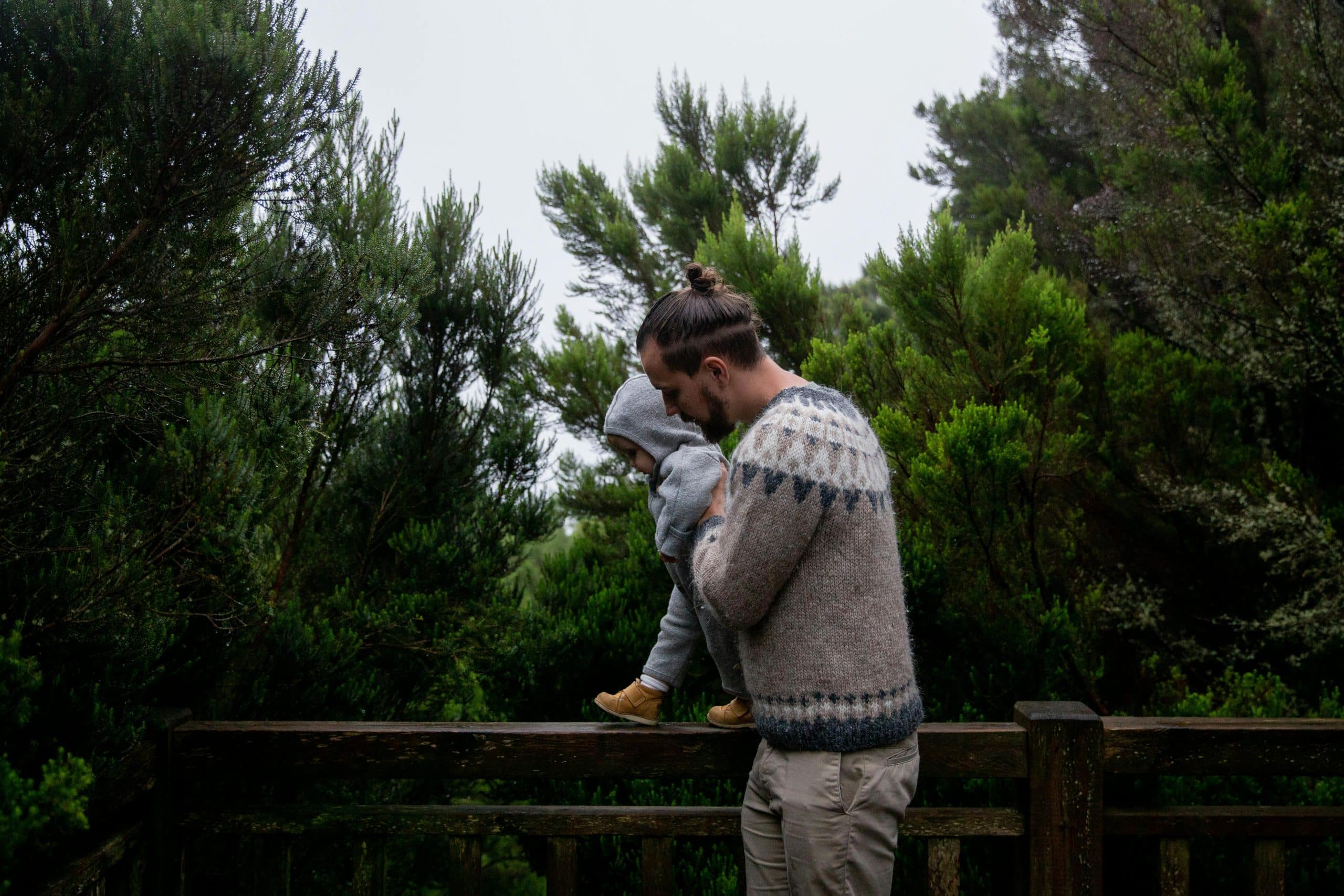On Father’s Day, families gather to celebrate the father figures in their lives, whether Dads, step-Dads, divorced Dads or grandfathers. Wikipedia states the purpose of the day is for Dad “to receive gratitude and loving words from his family for his devotion to continuous altruistic concerns.”
Well, let’s not get carried away here! Typically fathers may get breakfast or coffee in bed made by their offspring, or a family dinner together, often at the grandparents’ house.
But some fathers find the day difficult. Father’s Day is a different experience for a Dad who has lost one or more of his children. I know, because I am one of them.
I am the father of 2 boys, Andrew and Steve, and I love them both dearly. But sadly, Steve died some years ago after suffering a devastating brain injury in a tragic accident. I am still the father of two sons, but I grieve the fact that one is no longer with me, and I miss him, not just on Father’s Day but every single day of my life.
My surviving son, Andrew, will undoubtedly do something nice to acknowledge his appreciation of me as his Dad. But he won’t be “with me” either, because he and his family live thousands of miles away. We see each other a few a year, and every week we have video calls with him and my four grandchildren, but it’s not the same as “being there”.
The death of any child, regardless of age or cause, is overwhelming to parents, who can never be fully prepared for children to die before them. It seems unnatural, for in the “normal course of events” we never anticipate our children dying before us. However, “normal” is not always the norm. Thus, parental grief is often intense, long-lasting, and complex.
The loss of a child represents every parent’s worst nightmare. People don’t know what to say or do. I myself didn’t feel like talking to anyone, because the situation just seemed “beyond words”. It was hard for me to even think about far less talk about the accident. I didn’t like it when people asked “What happened”, because that felt to me more like curiosity than sympathy. Now, in fairness, in my grief, I was “oversensitive” and often took innocent or well-intentioned comments the wrong way. so when talking with a grieving person, we really have to be careful what we say. “I’m sorry” is as good as anything.
The grief and the healing process contain similar elements for all bereaved parents. However, if an adult child dies as a result of an accident or illness, parents are frequently told by friends or family that they” should be grateful their child lived as long as he or she did”. Of course you are grateful to have had your child for ten, twenty or, in my case, 42 years and sometimes even longer, but that does not mean your grief is lessened. No matter how long a life anyone lives, it is never long enough for the people who care about them. Death always comes too soon.
Over time the bond between parents and older children evolve from parent-child to a more mature relationship. So not only do they feel they have lost their child, they have lost a friend, often their best friend. Parents who have lovingly encouraged their child’s development into maturity feel a sense of pride and accomplishment as the adult child completes their education, establishes a career, and develops adult relationships. By the time a child has reached adulthood, parents have made an immense emotional and financial investment in this person.
When that life does not run its full or anticipated span, there is often a sense of abandonment combined with a feeling of total futility. Parents often question their own purpose in life, since everything they invested in their child now seems for naught.
Grief is made more complicated when it is “discounted grief” where the child dies from a cause that makes others uncomfortable or judgmental, such as the result of suicide, drug use, driving drunk, or other causes that carry a social stigma. Most bereaved parents experience a sense of guilt for having outlived their child. But many often experience an even more intense sense of guilt for not having realized that their child was having serious difficulties.
After suicide, others may ask why no one saw it coming, causing the parents to feel they should have been able to see something often hidden deep within their child that not even experts in the field can always foresee.
Parents often wonder what they could have done differently to prevent the situations that may have caused their child’s death. After all, parents are supposed to look after and protect their children, and when they die we feel like we have failed them for which we struggle with guilt.
Other parents were supporting their adult child due to a physical or mental illness, or when suffering struggles with drugs or alcohol. This son or daughter may have become the focus of their lives, and the death leaves a huge void in the daily routine, which adds to their feelings of loss.
But guilt is sometimes felt even in favorable situations. I knew an elderly couple in their 90’s whose son died in his 60’s telling me they felt so guilty because he had left them money enabling them to move into an upscale nursing home.
Other Issues Often Faced by Parents When an Adult Child Dies
- If the adult child was married or had family, the major focus can often be on the grief of their immediate family and not on the parents.
- If the child was unmarried, there could be property, finances, estate, wills, and other legal issues with which the parents must contend.
- Grandchildren need comforting as the surviving spouse is usually exhausted physically and emotionally and may be unable to comfort the children, who are also grieving. So the grieving parents may be conscripted.
- Parents eventually may have to handle the emotions that can arise when the spouse dates or remarries.
- Parents, especially those who are elderly or whose only child has died, may experience fears and concerns regarding who will take care of them in later years or in the case of failing health.
- If the parent has been financially or emotionally dependent upon the adult child, decisions must be made regarding where to turn for support.
Facing the Future
Grieving parents may feel they have nothing to live for. The loss of purpose and the thought of living the rest of your life without your child can be frightening. They may feel like their life is over as well. Let me state from experience that while these feelings are natural, we can all be assured that a sense of purpose and meaning does return. Although the wound will always be there, it does begin to heal. The pain does lessen. Trust me, I’ve been through it.
One of the most demanding challenges you will face is to refocusing and reinvesting your life. I found a renewed sense of purpose in dedicating myself to helping Steve’s then 4 year old daughter. We have a special bond because I feel that she is the part of him that I still have left. I don’t love my other grandchildren any less, but this is Steve’s kid. Grieving parents will understand.
With remaining family, talk together about the death, the loss, and the pain. Try to revisit the good memories of your child, and not just the difficult memories of the death. Try to understand that every person within the family will be grieving in their own manner. It is better to express feelings than to internalize them; crying is both healthy and therapeutic.
Allow friends to help. When they ask what they can do for you, don’t be afraid to tell them of your needs.
While counseling can help, many parents turn to a community grief group for support, finding hope and comfort by sharing their story with others who have “been there, and can empathize. The group can help you gain insights into your reactions and in learning ways to cope in an atmosphere of acceptance and understanding, and help you see that you are not alone as you express your grief
Bereaved parents often want to do something constructive in memory of their sons or daughters. Many have established memorial funds, created scholarships, made donations to special charities, given books to libraries, planted trees, and become involved in helping others. We have an annual golf tournament with his many friends and colleagues to remember Steve.
Such acts keep the memories of our children alive and vibrant, giving others opportunities to feel the beauty of life and their love for their child. Not only are these activities a wonderful tribute, but they can also be very healing while providing a sense of purpose to the parent.


